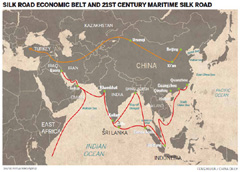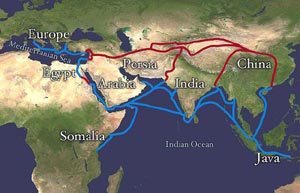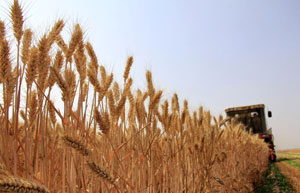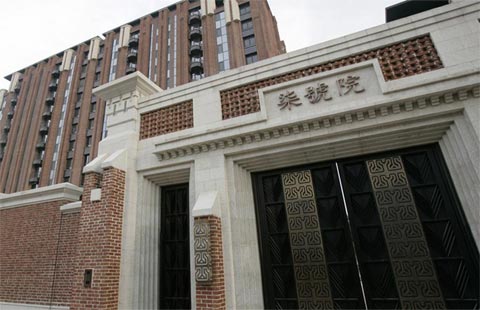Kazakh students say Silk Road will pave way for career openings
By Cui Jia in Almaty, Kazakhstan (China Daily) Updated: 2014-06-04 06:49Alimzhan said he hopes to go to China in September to get a master's degree in international business and work for Kazakh companies in China.
|
 |
| Special: Silk Road taking on a new look |
|
 |
| Tourism to be leading industry along Silk Road |
"For me, the economic belt is a great opportunity to build my career," he said.
Mazhebitskay said Chinese companies "should open up factories in Kazakhstan that manufacture the daily essential products instead of shipping them from China, so more job openings could be created".
The majority of daily essential products consumed by Kazakhs are imported from China, and the demand for high-quality products is surging, said Huang Jie, a distributor in Almaty of Chinese products ranging from vegetables to outdoor furniture.
Huang, age 49, is from Urumqi, the capital of Xinjiang, and has been running her business in Yalian market for more than 17 years. She said most of her goods are shipped to the city via Horgos Port. Most of the vegetables she sells in the winter are from planting bases near Horgos in Xinjiang.
"The Kazakhs have just wanted cheap products in the past, but now they prefer products with better quality than price," she said. As one of the 10 major Chinese distributors in the market, Huang's business sees average daily sales of around 400,000 yuan ($64,000).
"The economic belt has made Chinese businessmen see the potential of Kazakhstan," Huang said. "Some have already tried to set up small factories in Almaty producing paints and other construction materials for the growing Kazakh market."
|
 |
 |
| Revival of ancient Silk Road 'essential' for Asian nations | Assessing the fabric of a 'new Silk Road' |
- Big cities struggle to meet pollution standards
- Housing market shift not alarming, official says
- Concentrated detergents get a clean report
- Magilm Pictures raises 60m yuan in funding
- China's smog clear-up faces challenges
- Tight property loans restrain China's housing market
- Reaping the wheat harvest in Henan
- NDRC gears up to support Xinjiang development

















